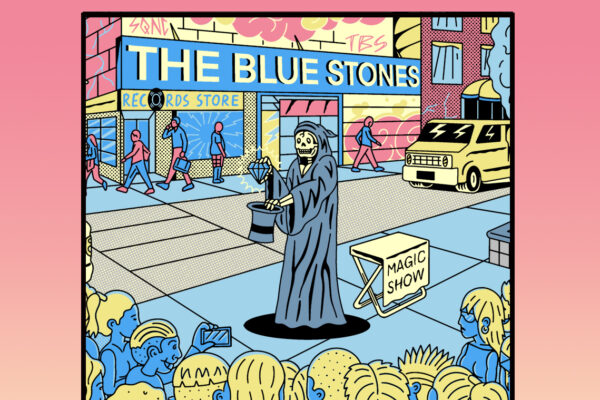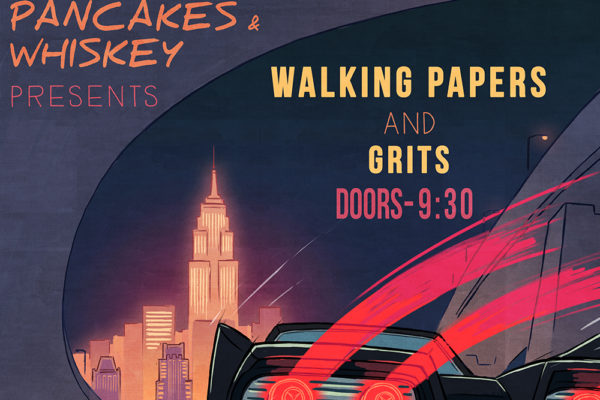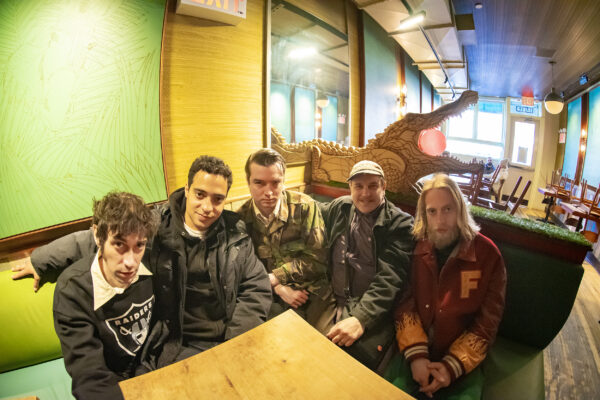In story and in song, sometimes the most compelling, resonant conclusion is the one that’s left to the mind’s eye. Inspired to write from a place that is far from the fine points of set in stone storytelling, the music of ONR. – pronounced ‘honor’ – encourages audiences to embrace a state that is beaming with feeling. When left to simmer, revelations are brought to light in a way that reflect the instances when just as much meaning, maybe even more, can be gleaned from that which is left unsaid. “I am a huge fan of sort of slightly ambiguous lyrics and I always have been since growing up,” ONR.’s mastermind, Robert Shields, tells Pancakes and Whiskey. Pointing to artists who would write music that felt so full even when leaning into the most abstract elements of their work, the musician has found inspiration in the notion that intimacy can walk beside mystery. “I was a massive fan of Elton John’s songwriting, or Bernie Taupin’s lyrics I should say, and David Bowie’s lyrics, where there was so much left to the imagination,” he says. For Shields, the various personal meanings listeners have taken from his work has been an unexpected, exciting response to music born from the embers of his own unique experiences, though he remains weary of anything that could steer a song’s sense of subtlety towards blankness. It’s a process, that – much like a house of cards – will collapse if the perfect balance isn’t struck. “I think if you’re able to get it right, yeah, that’s what I love to do,” he says when describing how it feels to make something that is somehow able to connect so deeply with so many for such different reasons. “The idea that thousands of people can each have a completely separate idea of what the track is, but still get something out of it? I love that idea.”
Growing up on a farm in Scotland, Shields was exposed to the legendary songwriters that populated his family’s record collection, and a contemporary crop of soon to be new classics, which captivated him and his circle of friends. “It was a real mix,” he says of his musical upbringing and subsequent immersion into the worlds of David Bowie, Bruce Springsteen, Joy Division and The Smiths. Over the years, he played in various groups including the breakout band Finding Albert, until a need for something different began to change the way he thought about songwriting. With a fresh perspective and sharpened focus, he set out to make music whose only ambition was to capture his voice in its purest expression. “For the first time in a long time, I was writing stuff just because it reflected how I felt at the time and that sounds…it sounds so simple,” he laughs. “It sounds ridiculous, but you get so caught up in the idea of trying to push your music out into the outside to get people involved. I know for me it was beginning to lose this anchor of making sure that I was writing about stuff that was actually important to me and reflected the world around me and that it was an accurate representation of me not just as an artist, but as a person as well.”
Although at first, letting go of expectations was challenging. “It was difficult because I’ve always been such a control freak over everything,” he says. But in time, he found those early obstacles developing into a natural comfort that even followed him onstage. “When I came out of school and I was writing, you know, love songs and all the kind of usual sort of songwriting process that young people go through, I was almost having to adopt a sort of character in order to get through shows and to gain the confidence to do that,” he explains. “But with this music it was completely different. It felt like I was already the character that I was trying to portray.” Taking further inspiration from Arcade Fire’s seminal 2010 record, The Suburbs, the musician credits the band with underscoring the importance of taking chances and writing for yourself. Even now, it remains a collection that glows with that essential, irreplaceable wisdom. “It reminds me that the writing process should only really be to please myself in the initial stages. I think, I could be completely wrong – I could be totally wrong – but I think that’s what they did on that album because it just comes across to me as a band that are just experimenting. They’re just writing songs that they want to write and you know the tempo changes and the key changes, and they’re all things that you wouldn’t normally put in such a commercially successful record, I guess, and it came across as so genuine.”
Merging thoughtful lyrics with a blooming sonic palette, the music Shields has released as ONR. is every bit as adventurous and grounded as the project’s name would suggest. “It was eventually liberating when I sat back and started to write songs that I wasn’t looking to get anything out of and have a plan for them before they were ready,” he now says of the tracks that were guided and formed by pure instinct and reflex. It’s a sound that’s urgent and vital, morphing between dizzying highs and harrowing lows with the ease and speed of a mood ring. From the beginning, he’s been drawn to arrangements that are both intricate and straightforward, something he describes as “complexity dressed as simplicity.” To go deeper and deeper within a track is to reveal things that couldn’t be grasped on the surface, all of which makes for a listening experience brimming with the vivid colors and meditative tone of a soaring, contemplative sing-a-long. And while the piano is his primary instrument, he plays as many as possible when building a song in order to always keep things imaginative and new, a practice which illustrates and upholds the merits of creating without a roadmap or destination in mind.
Article: Caitlin Phillips











